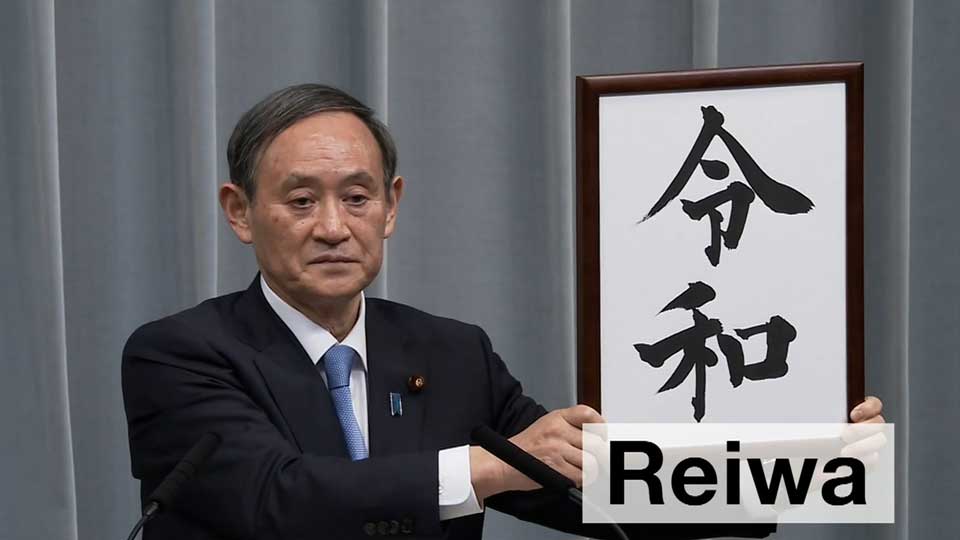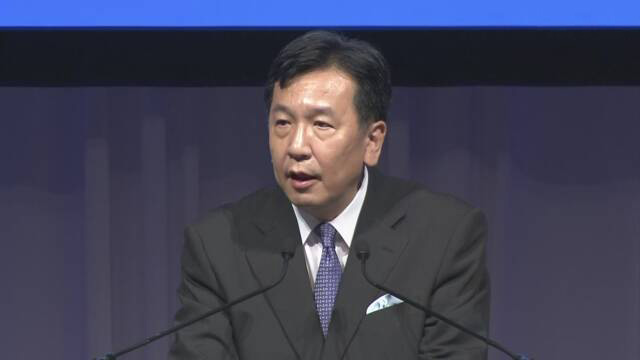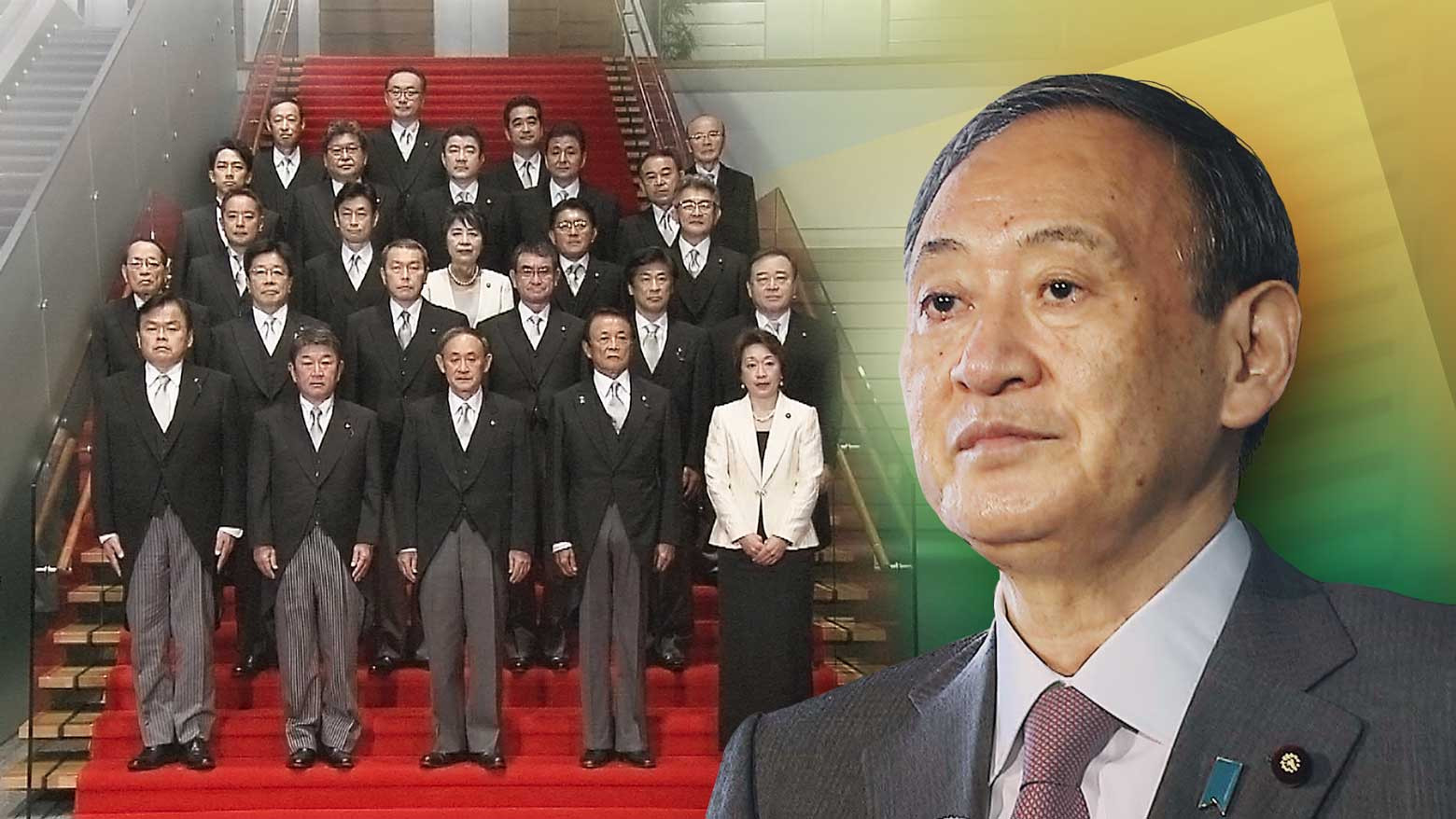"We can never afford to have a political vacuum when our country is facing a grave challenge," he said after being chosen by the Diet this week to become Japan’s 99th prime minister.
"To overcome the current crisis and give the public peace of mind again, we need to push forward with the efforts the Abe government had been making. That is my mission," he said.
Who is Suga Yoshihide?
The 71-year-old wasn't born into politics. He grew up on a strawberry farm in Akita prefecture, northeastern Japan. Suga came to Tokyo after he graduated from high school, and worked at a cardboard factory.
He studied at Hosei University in Tokyo, and served as a secretary to a Yokohama politician, Okonogi Hikosaburo. During that time he met and married Mariko, with whom he has three sons.
Suga won a Diet seat in the 1996 Lower House Election at the age of 47, after serving as a Yokohama city councilor.
Years later he became part of Abe's first cabinet, as the Minister of Internal Affairs and Communications.
Abe's first term as Japan's prime minister lasted just one year, 2006-2007, but Suga pushed for Abe's return and helped him regain leadership of the party five years later.
As chief cabinet secretary, Suga became the face of Abe's next government, from 2012 to 2020. It was Suga who announced the name of Japan's current era, Reiwa. The moment earned him internet fame and the nickname "Uncle Reiwa".

Pressing on with Abe's agenda
In the leadership race for the Liberal Democratic Party on September 14, Suga won more than 70% of the votes cast, beating two other veteran politicians, with a promise of continuity.
He has carried that theme through to his cabinet, with 15 of the 20 ministers announced this week being part of the Abe government at some point.
Suzuki Kazuto, a professor of international political economy at Hokkaido University, says that although Suga is yet to lay out his own foreign policy blueprint, his choices for foreign and defense ministers suggests he plans to maintain the status quo.
"The new defense minister, Kishi Nobuo, is the younger brother of Abe, and he would be considered a rather hawkish personality. So, for example, in relation to South Korea, that may not work in favor of turning around the sort of abating, very difficult relationship with South Korea.
Suzuki says it's important for Suga to create an effective foreign policy team: "He needs a good adviser and a good team to support him in foreign policy. The reappointment of Motegi Toshimitsu as foreign minister is one thing which is at least reassuring, but that may not be enough."
Suga is facing criticism for appointing just two women - out of twenty ministers – to his cabinet. Female political representation in Japan is among the worst level in the world and last year the country fell to 121st place in the World Economic Forum gender equality rankings — its lowest on record.
A political scientist at Hitotsubashi University, Professor Nakakita Koji, describes the situation as disappointing.
"This is an extremely serious problem in Japanese politics. Basically, the center-left party is enthusiastic about gender equality policy. But, such parties in the country are fragile, so the main ruling Liberal Democratic Party is under no pressure to reform. The problem also relates to structural issues such as low competition between the ruling and opposition parties in Japanese politics," he says.
A new opposition is born
Simultaneously, the opposition is reinventing itself in a bid to change the tide. While the LDP has a new leader in Prime Minister Suga, the newly expanded Constitutional Democratic Party was launched this week with 150 Diet members. Although the LDP has three times that number of lawmakers, that does not mean the opposition has no chance in an election. The Democratic Party of Japan was around the size of the new party when it took advantage of LDP scandals to win power in 2009.
At an inaugural meeting in Tokyo, CDP leader Edano Yukio said people had given up on politics during the last seven years and eight months of the Abe government, with opposition parties unable to offer a clear alternative during that time.

"I feel deeply responsible for that, but now is the time for the new opposition party to present a fresh option," he said. As for the new platform, Edano is known as left-leaning and supportive of the middle and lower classes.
Election coming soon
There's less than a year to go before the end of the current term for the Diet's Lower House, and a snap election is rumored to be under consideration. Asked about that possibility, Suga has said that the public expects him to focus on ending the coronavirus outbreak and rebuilding the country's economy. It's understood that both of those issues will inform any decision to dissolve the Lower House.
Professor Nakakita says a snap election could be a game-changer: "If the opposition party can gain more seats in the next election, it could give them momentum. If the CDP loses seats, it is highly likely that the opposition parties will enter a state of confusion again. The timing of a snap election will present a major crossroads for Japan's political structure."

